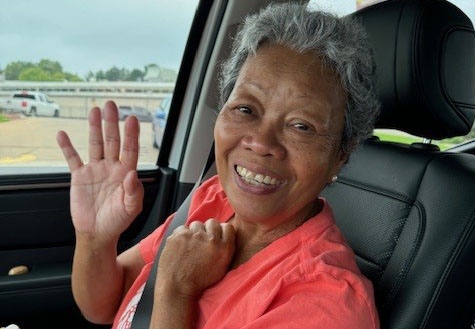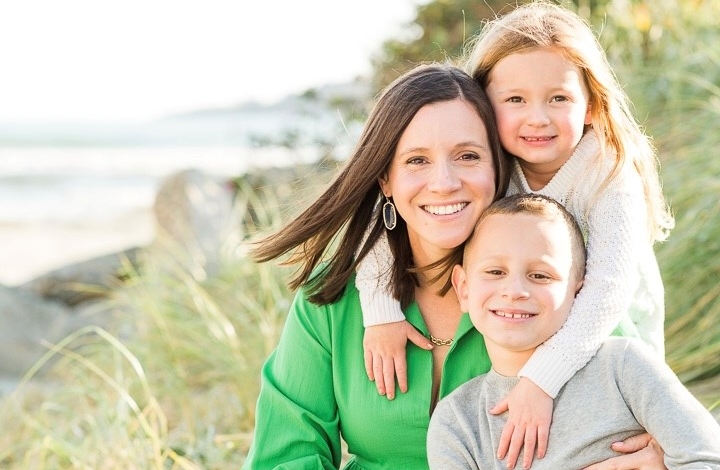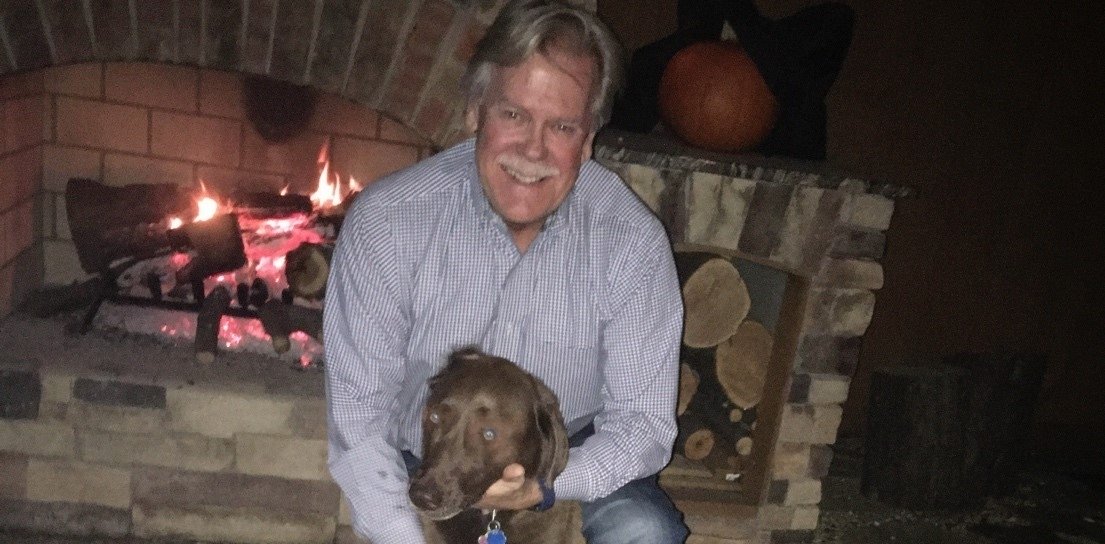- Diseases
- Acoustic Neuroma (14)
- Adrenal Gland Tumor (24)
- Anal Cancer (66)
- Anemia (2)
- Appendix Cancer (16)
- Bile Duct Cancer (28)
- Bladder Cancer (68)
- Brain Metastases (28)
- Brain Tumor (228)
- Breast Cancer (716)
- Breast Implant-Associated Anaplastic Large Cell Lymphoma (2)
- Cancer of Unknown Primary (4)
- Carcinoid Tumor (8)
- Cervical Cancer (154)
- Colon Cancer (164)
- Colorectal Cancer (110)
- Endocrine Tumor (4)
- Esophageal Cancer (42)
- Eye Cancer (36)
- Fallopian Tube Cancer (6)
- Germ Cell Tumor (4)
- Gestational Trophoblastic Disease (2)
- Head and Neck Cancer (6)
- Kidney Cancer (124)
- Leukemia (344)
- Liver Cancer (50)
- Lung Cancer (288)
- Lymphoma (284)
- Mesothelioma (14)
- Metastasis (30)
- Multiple Myeloma (98)
- Myelodysplastic Syndrome (60)
- Myeloproliferative Neoplasm (4)
- Neuroendocrine Tumors (16)
- Oral Cancer (100)
- Ovarian Cancer (170)
- Pancreatic Cancer (166)
- Parathyroid Disease (2)
- Penile Cancer (14)
- Pituitary Tumor (6)
- Prostate Cancer (144)
- Rectal Cancer (58)
- Renal Medullary Carcinoma (6)
- Salivary Gland Cancer (14)
- Sarcoma (236)
- Skin Cancer (294)
- Skull Base Tumors (56)
- Spinal Tumor (12)
- Stomach Cancer (60)
- Testicular Cancer (28)
- Throat Cancer (90)
- Thymoma (6)
- Thyroid Cancer (98)
- Tonsil Cancer (30)
- Uterine Cancer (78)
- Vaginal Cancer (14)
- Vulvar Cancer (18)
- Cancer Topic
- Adolescent and Young Adult Cancer Issues (20)
- Advance Care Planning (10)
- Biostatistics (2)
- Blood Donation (18)
- Bone Health (8)
- COVID-19 (362)
- Cancer Recurrence (120)
- Childhood Cancer Issues (120)
- Clinical Trials (622)
- Complementary Integrative Medicine (24)
- Cytogenetics (2)
- DNA Methylation (4)
- Diagnosis (226)
- Epigenetics (6)
- Fertility (62)
- Follow-up Guidelines (2)
- Health Disparities (14)
- Hereditary Cancer Syndromes (122)
- Immunology (18)
- Li-Fraumeni Syndrome (8)
- Mental Health (118)
- Molecular Diagnostics (8)
- Pain Management (62)
- Palliative Care (8)
- Pathology (10)
- Physical Therapy (18)
- Pregnancy (18)
- Prevention (890)
- Research (388)
- Second Opinion (74)
- Sexuality (16)
- Side Effects (602)
- Sleep Disorders (10)
- Stem Cell Transplantation Cellular Therapy (216)
- Support (404)
- Survivorship (322)
- Symptoms (184)
- Treatment (1768)
Ovarian cancer survivor finds support in colleagues, students
5 minute read | Published June 28, 2021
Medically Reviewed | Last reviewed by an MD Anderson Cancer Center medical professional on June 28, 2021
Careli Ann Garza’s colleagues consider her the heartbeat of Gladys Porter Early College High School. As the assistant principal, Careli can be found chatting in the hall with students about post graduation plans or racing to an after-school game once the bell rings. She began working for the Brownsville Independent School District as a substitute teacher 13 years ago and took on her current job eight years ago. In that time, Careli has considered the Porter High School students her kids and her colleagues her extended family.
This past fall, during one of the hardest times of Careli’s life, they got the chance to try and repay her. In October 2020, 32-year-old Careli completed her stage III ovarian cancer treatment. For nine months, she had traveled back and forth from Brownsville, Texas to MD Anderson for appointments, chemotherapy treatments and even surgery. Careli was unable to mark the end of her treatment by ringing the bell at MD Anderson due to COVID-19 precautions. She was disappointed, but she understood that MD Anderson needed to protect its immunocompromised cancer patients.
When she returned to campus officially in remission, her colleagues surprised her with their own celebration. Dressed in #CareliStrong T-shirts, her campus Band Directors played music and cheered Careli on as she marched to a gong and a mallet. She struck it once signifying that cancer was now behind her.
“My ovarian cancer diagnosis was a big surprise,” Careli says. “But the support I received was an even bigger one – and the biggest blessing.”
An ovarian cancer diagnosis
Careli had started experiencing severe stomach pain and bloating in March 2020.
“I looked like I was nine months pregnant,” she says.
Doctors offices were closing their doors and restricting patients due to COVID-19, so she went to a local urgent care. A CT scan showed a mass in her stomach. The urgent care team knew it was cancer and transported her to a local hospital. On April 10, Easter weekend, the doctors diagnosed her with stage III ovarian cancer and told her she needed to get to MD Anderson. She spent a few nights in a Brownsville hospital and then was transported by ambulance the following Tuesday for her appointment in Houston.
Arriving at MD Anderson for ovarian cancer treatment
Careli was nervous, but the nurses helped her feel relief. She met with gynecologic oncologist Karen Lu, M.D. Just like the nurses, Lu helped ease Careli fears. She told her she had a tough diagnosis, but she was in good hands.
On April 24, 2020, Careli began her first of six rounds of chemotherapy with a drug called paclitaxel. She came to MD Anderson in Sugar Land every six weeks for each infusion. The suburban location was easier for to her to get to than the Texas Medical Center.
“I always felt so safe there,” Careli says.
Family support brings comfort despite COVID-19 restrictions
While her parents and her brother were unable to sit beside her during her treatments due to visitor restrictions to keep patients safe from COVID-19, they found other ways to support Careli.
“They were 100% with me, even when they couldn’t physically be with me,” Careli says.
They took time off work to travel with her. They served as cheerleaders when she had a tough time and reminded her not to let cancer get in the way of the things she loved.
For the first week and a half following the start of her treatment, Careli felt depressed. Before the onset of her ovarian cancer symptoms, Careli had been active and busy, always on the go. Now, she had trouble finding the energy and enthusiasm to do anything.
Her mother told her, “This isn’t like you,” and urged to get back to some of the activities she used to love. She took Careli shopping for a wig.
“This isn’t going to stop you,” her mother told her.
That was just what Careli needed to hear. It gave her the motivation to get back to work, where her students and colleagues became another support group, an extension of her family.
Surgery moves her one step closer to remission
In summer 2020, Careli began preparing for surgery. During the procedure, Lu and the rest of her team planned to remove as much of Careli’s tumor as possible and determine if her cancer had spread. But they faced a bit of a mystery. On all the scans, Careli’s tumor appeared large – so large that it obscured the view. That made it difficult to tell exactly how big the tumor was and which organs it impacted.
On July 24, 2020, Careli had surgery. Lu was able to remove Careli’s basketball-sized tumor all at once, and there was no sign the cancer had spread. After a few days in the hospital and a short stay at a nearby hotel in Houston, Careli returned home to Brownsville, one step closer to being cancer-free and ready to continue her chemotherapy.
The last three rounds of chemotherapy proved to be especially trying. Careli felt tired and nauseous. She looked to her family and friends for support, and eventually the chemotherapy side effects subsided. In October, Lu shared with Careli the good news: her cancer was in remission. The two snapped a photo on Careli’s phone to mark the occasion, both their smiles wide and genuine. Careli had come so far.
Life after ovarian cancer treatment
Now in remission, Careli is adjusting to life after cancer treatment. Once famous for her waist-length hair, she’s stopped wearing wigs.
“Now I’m sporting a pixie cut,” she says. “The students didn’t recognize me at first. But everybody likes it. They tell me I should have cut it a long time ago.”
For Careli, one of the hardest and most lasting changes that resulted from ovarian cancer treatment was the loss of her fertility. Careli met with oncofertility specialist Laurie McKenzie, M.D., at the start of her treatment and learned that the chemotherapy and surgery would make it impossible for Careli to conceive. But McKenzie said there were options for her to use an egg donor, should she want to have children someday.
Careli didn’t have immediate plans to have children, but no longer having that option left her with a feeling of loss she hadn’t anticipated.
“It was hard to hear at first,” Careli says.
But as she progressed in her treatment and returned to work, she found comfort and hope. The support she received from her students reminded her that family comes in many forms.
“Actually,” she says, reminiscing about the support she received, “I have a lot of kids.”
Request an appointment at MD Anderson online or by calling 1-844-678-1802.
Related Cancerwise Stories

I always felt so safe there.
Careli Ann Garza
Survivor





